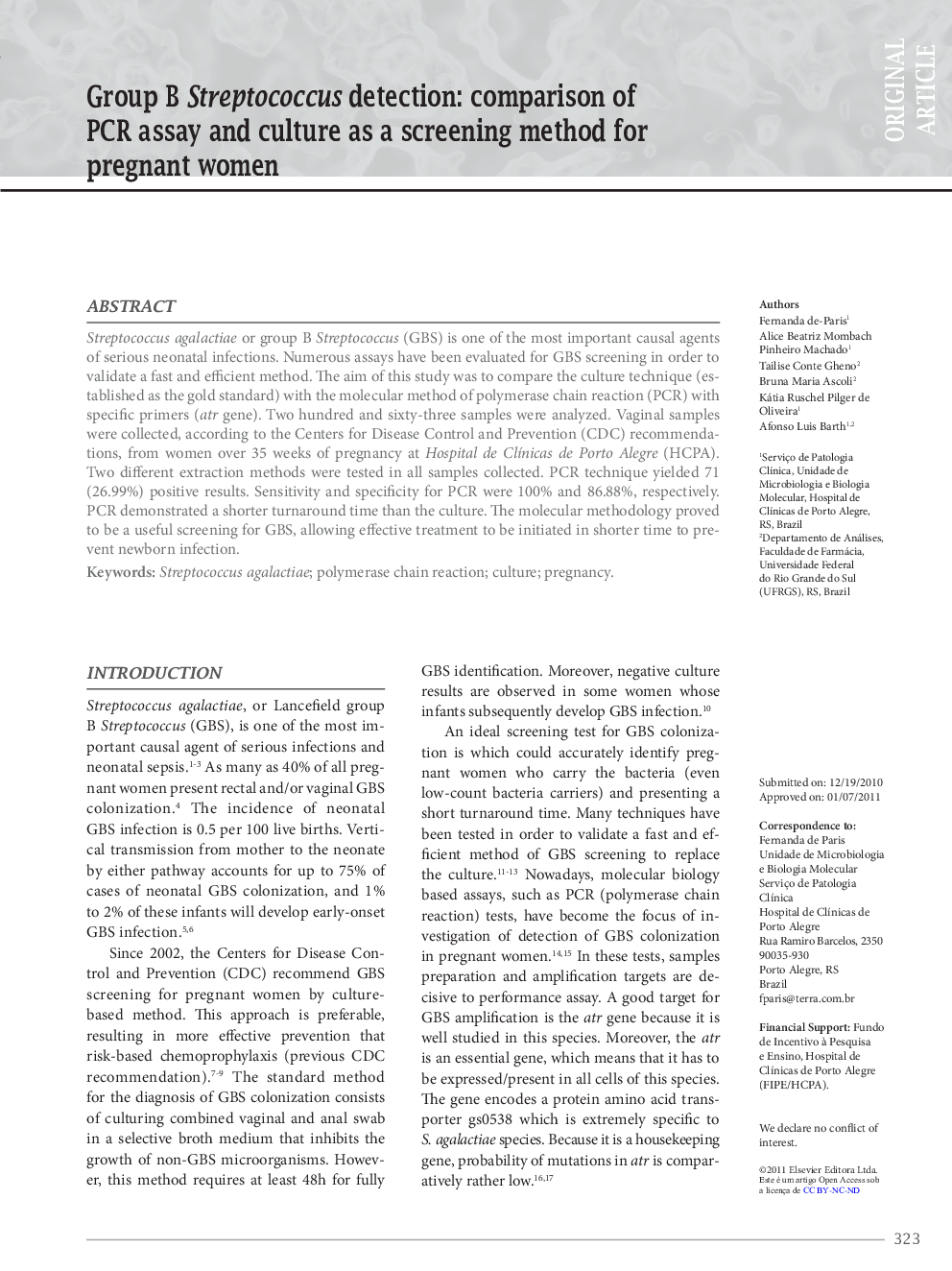| Article ID | Journal | Published Year | Pages | File Type |
|---|---|---|---|---|
| 3344510 | The Brazilian Journal of Infectious Diseases | 2011 | 5 Pages |
Streptococcus agalactiae or group B Streptococcus (GBS) is one of the most important causal agents of serious neonatal infections. Numerous assays have been evaluated for GBS screening in order to validate a fast and efficient method. The aim of this study was to compare the culture technique (established as the gold standard) with the molecular method of polymerase chain reaction (PCR) with specific primers (atr gene). Two hundred and sixty-three samples were analyzed. Vaginal samples were collected, according to the Centers for Disease Control and Prevention (CDC) recommendations, from women over 35 weeks of pregnancy at Hospital de Clínicas de Porto Alegre (HCPA). Two different extraction methods were tested in all samples collected. PCR technique yielded 71 (26.99%) positive results. Sensitivity and specificity for PCR were 100% and 86.88%, respectively. PCR demonstrated a shorter turnaround time than the culture. The molecular methodology proved to be a useful screening for GBS, allowing effective treatment to be initiated in shorter time to prevent newborn infection.
